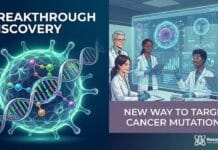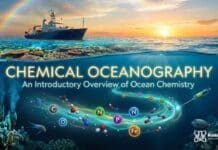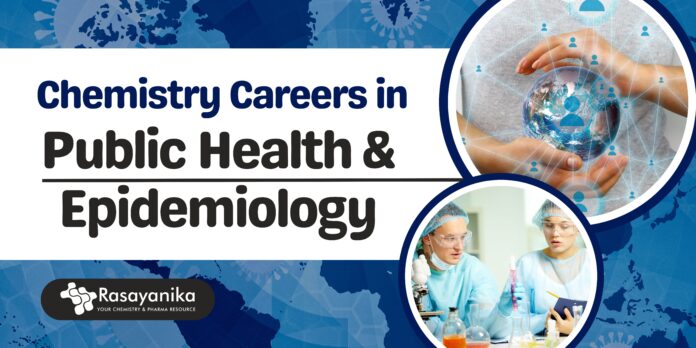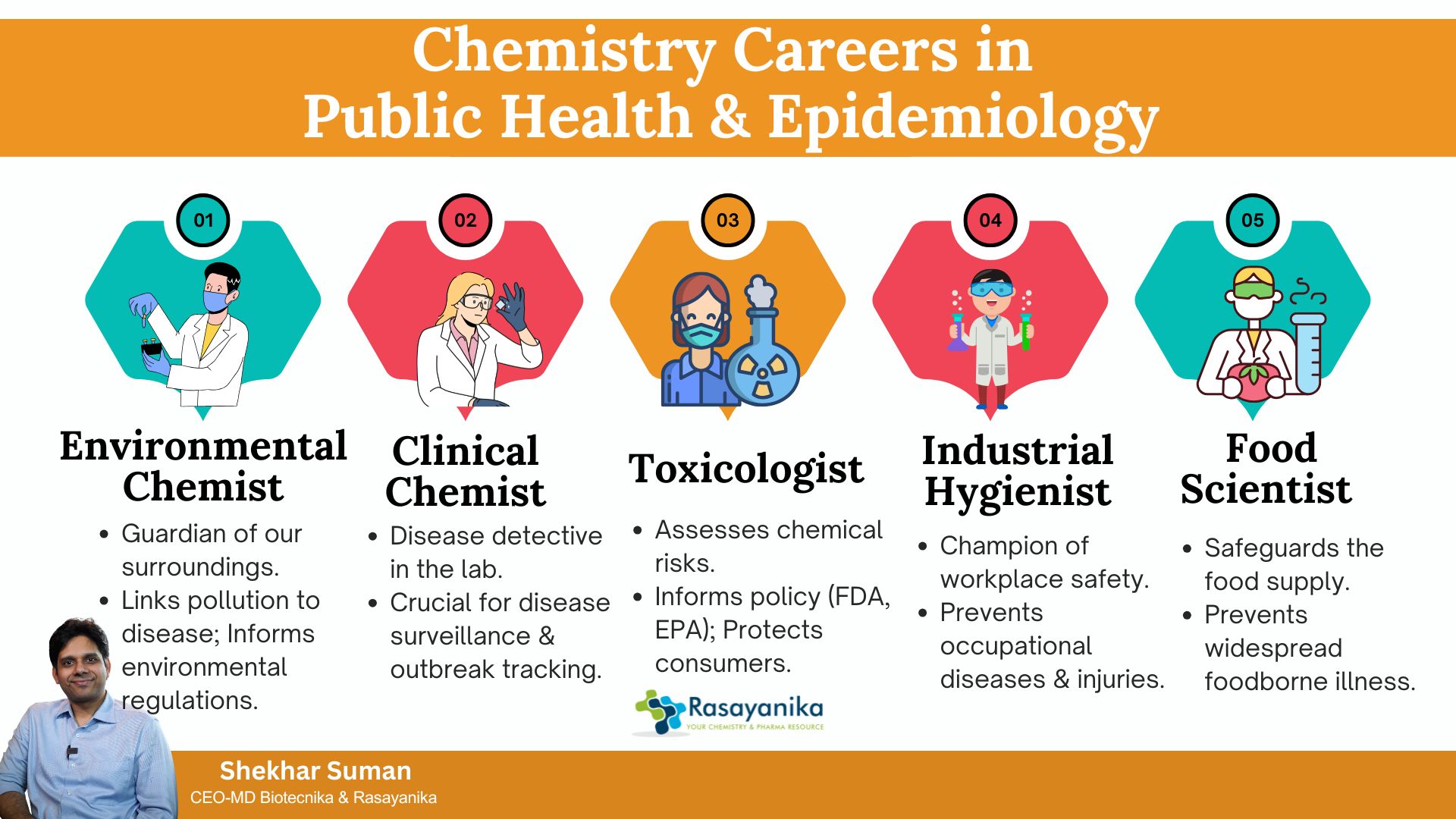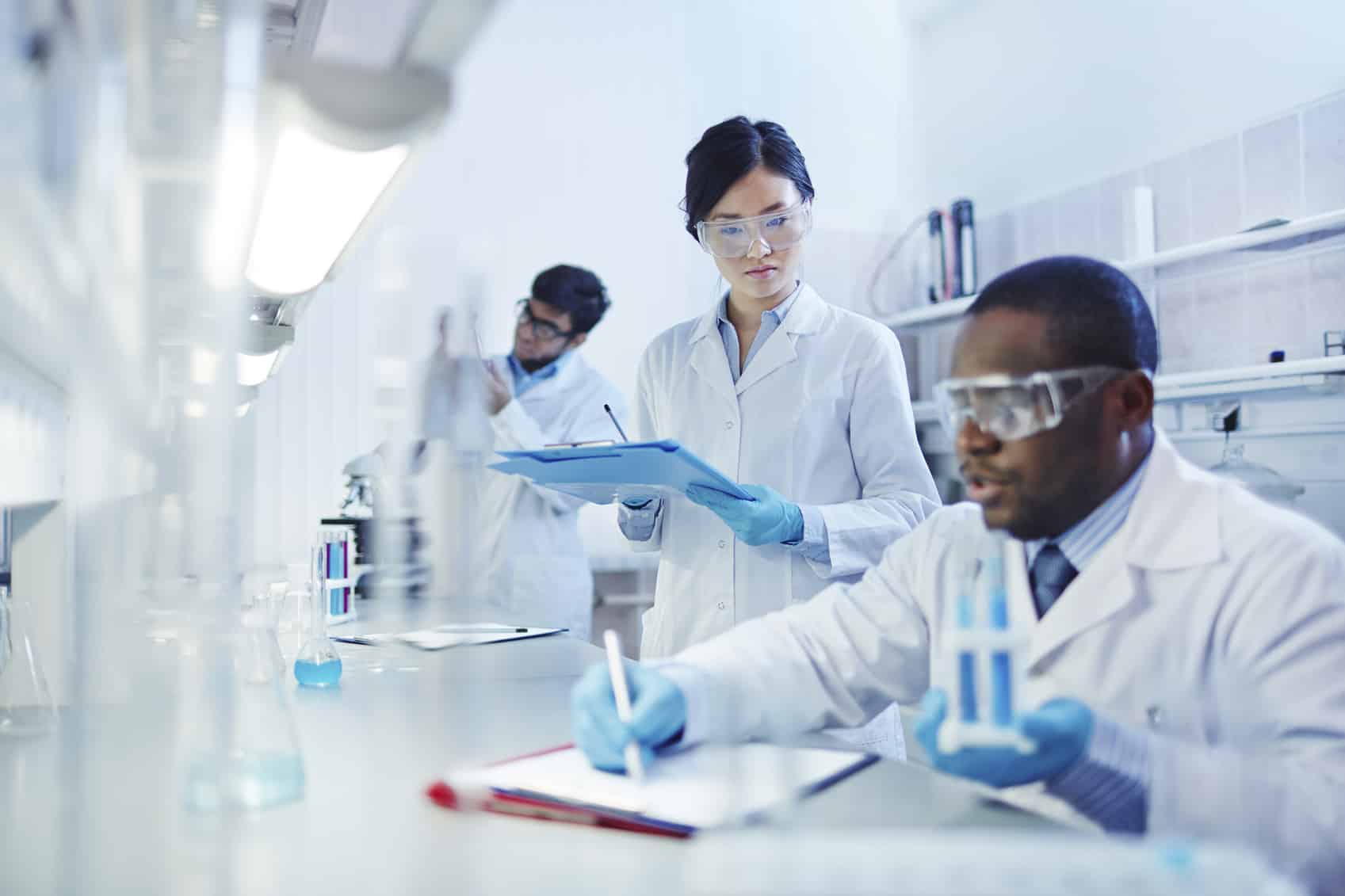Chemistry Careers in Public Health & Epidemiology
Have you ever wondered how we know our drinking water is safe, what causes disease outbreaks in a community, or how workplace safety standards are set? The answer often lies at the intersection of two powerful fields: chemistry and public health.
When people think of public health or epidemiology, they often picture doctors, data analysts, or public policy professionals. But chemistry plays a vital, often hidden role in this field. However, if you have a background in chemistry, pursuing a career in public health and epidemiology is one of the best options. This field makes a significant difference in providing impactful benefits to society.
The current article provides a clear and concise overview of the vital roles chemists play in safeguarding community health. Additionally, we have curated the skills you’ll need and how you can build a rewarding career in this essential field.
Understanding the Link Between Chemistry and Public Health
Public health is about preventing disease and promoting wellness in a community. Epidemiology is the detective work within public health, the study of how and why diseases spread. Superficially, one might feel it is only related to biologists and healthcare professionals, but chemistry provides the fundamental tools and knowledge for both.
Nearly every major public health issue has a chemical component. A Chemist is an expert who can identify any harmful substances present in our surroundings. They will also provide awareness by measuring toxin levels, which will help understand the effects of toxins on the human body. All these studies require an in-depth knowledge at the molecular level. Without these precise data, provided by chemists, epidemiologists, and public health officials, they couldn’t draw accurate conclusions or create effective policies to protect us.
Core Chemistry Careers in Public Health and Epidemiology
A chemistry degree will help you gain various dynamic and in-demand career paths. Here are some of the most impactful roles.
1. Environmental Chemist: Protecting Our Surroundings
Environmental chemists are the guardians of our natural world. They study the chemical processes that happen in the air, water, and soil, and their work is crucial for identifying environmental threats to human health.
- What They Do: An environmental chemist spends their time collecting samples from sites like rivers, industrial zones, or agricultural land. Using techniques such as chromatography and mass spectrometry, they test for pollutants, track their sources, and determine how they may affect local populations.
- Public Health Impact: Their findings are critical in everything from cleaning up contaminated sites to linking a cluster of illnesses to a specific environmental exposure. They provide the hard evidence needed for public health alerts and environmental regulations.
2. Toxicologist: Assessing Chemical Risks
Toxicologists are experts in finding out the adverse effects of chemical substances on living organisms. Their work is essential for understanding the dangers of a substance and for establishing safety limits.
- What They Do: Their job role mainly includes designing and conducting studies to determine the health risks associated with chemicals. They can be derived from chemicals such as pesticides and industrial waste, as well as everyday consumer products.
- Public Health Impact: Public health toxicologists are often employed by government agencies, such as the Environmental Protection Agency (EPA) or the Food and Drug Administration (FDA). Their research directly informs public policy and safety standards that protect millions of people from exposure to harmful chemicals.
3. Clinical Chemist: Diagnosing Disease in the Lab
Working behind the scenes in medical and public health laboratories, clinical chemists analyze patient samples (like blood and urine) to help diagnose disease and monitor community health trends.
- What They Do: The job role includes developing and performing tests that measure levels of critical substances in the body. In a public health crisis, such as a flu outbreak or a waterborne illness, clinical chemists are responsible for analyzing samples to identify the specific pathogen or toxin.
- Public Health Impact: Their work is vital for disease surveillance. By tracking biomarkers across a population, epidemiologists can better understand the spread of disease, monitor the effectiveness of interventions, and identify public health threats.
4. Industrial Hygienist: Ensuring Workplace Safety
An industrial hygienist applies the principles of chemistry and physics to protect the health and safety of workers. They are on the front lines of preventing occupational diseases and injuries.
- What They Do: This job role includes visiting the worksites to anticipate, identify, evaluate, and control potential hazards. This includes testing the air for hazardous vapors, assessing risks from chemical spills, and ensuring proper safety protocols are in place.
- Public Health Impact: They have a significant role in impacting proper public health safety. A healthy workforce is a cornerstone of a healthy community. By creating safer work environments, industrial hygienists prevent illnesses and injuries, which in turn not only reduces the burden on the healthcare system but also helps in improving overall quality of life.
5. Food Scientist: Safeguarding the Food Supply
A Food Scientist, or Food Chemist, plays a critical role in ensuring the safety and quality of our food from the farm to the table. This is a vital public health function that prevents the spread of widespread illness.
- What They Do: This job role crucially involves applying their knowledge of chemistry to analyze the nutritional content of foods and, most importantly, to detect harmful substances. This includes searching for bacterial toxins, unapproved additives, pesticide residues, and other contaminants that can cause foodborne illness.
- Public Health Impact: In a public health laboratory, food scientists play a crucial role in investigating a food poisoning outbreak. By testing food samples, they can pinpoint the source of contamination, allowing health officials to issue recalls and prevent further illnesses. They are fundamental to enforcing food safety regulations.
Essential Skills and Education for Success
To thrive in this field, you need a specific blend of technical knowledge and practical skills. Essential education requires;
- A bachelor’s degree in chemistry or biochemistry is the foundation for this field. This provides you with an essential understanding of chemical principles and laboratory techniques.
- Advanced Degrees: For most specialized roles, an advanced degree is highly beneficial. A Master of Public Health (MPH) is an excellent choice as it directly bridges your scientific expertise with public health practice. A Ph.D. in toxicology, environmental chemistry, or a related field is often required for senior research and leadership positions.
Apart from the essential skills required by the industry, several desirable skills can help secure a job quickly. The skills are mentioned below;
- Analytical Skills: A deep knowledge of analytical chemistry and laboratory instrumentation is non-negotiable.
- Problem-Solving: You must be able to look at complex data and draw logical, evidence-based conclusions.
- Communication: You’ll need to clearly explain complex scientific information to non-scientific audiences, including policymakers and the general public.
- Attention to Detail: Precision is everything. A tiny error in measurement or analysis could have significant consequences for public health.
The Future Outlook for Chemists in Public Health
The demand for chemists in public health is growing. Emerging global challenges are placing chemical expertise at the center of the solution. Key future areas include:
- Pandemic Preparedness: Developing rapid diagnostic tests and new vaccine technologies.
- Climate Change: Monitoring the health impacts of changing environmental conditions, such as air and water quality.
- Nanotechnology: Assessing the safety and health risks of new nanomaterials in consumer and industrial products.
Choosing one of the many chemistry careers in public health and epidemiology is about more than just finding a job. It’s about applying your scientific passion to a purpose-driven mission: protecting communities and creating a healthier world. Whether you are in the field testing water sources, in the lab diagnosing diseases, or in an office setting, your work as a chemist will be a vital force for good.





